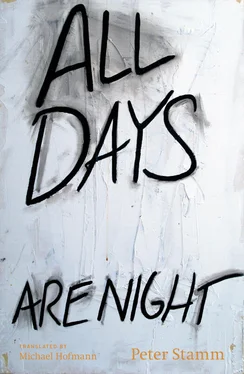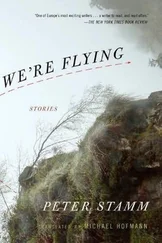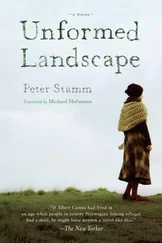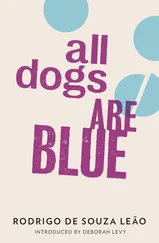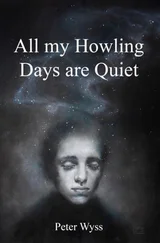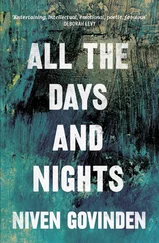Peter Stamm - All Days Are Night
Здесь есть возможность читать онлайн «Peter Stamm - All Days Are Night» весь текст электронной книги совершенно бесплатно (целиком полную версию без сокращений). В некоторых случаях можно слушать аудио, скачать через торрент в формате fb2 и присутствует краткое содержание. Год выпуска: 2014, Издательство: Other Press, Жанр: Современная проза, на английском языке. Описание произведения, (предисловие) а так же отзывы посетителей доступны на портале библиотеки ЛибКат.
- Название:All Days Are Night
- Автор:
- Издательство:Other Press
- Жанр:
- Год:2014
- ISBN:нет данных
- Рейтинг книги:3 / 5. Голосов: 1
-
Избранное:Добавить в избранное
- Отзывы:
-
Ваша оценка:
- 60
- 1
- 2
- 3
- 4
- 5
All Days Are Night: краткое содержание, описание и аннотация
Предлагаем к чтению аннотацию, описание, краткое содержание или предисловие (зависит от того, что написал сам автор книги «All Days Are Night»). Если вы не нашли необходимую информацию о книге — напишите в комментариях, мы постараемся отыскать её.
All Days Are Night — читать онлайн бесплатно полную книгу (весь текст) целиком
Ниже представлен текст книги, разбитый по страницам. Система сохранения места последней прочитанной страницы, позволяет с удобством читать онлайн бесплатно книгу «All Days Are Night», без необходимости каждый раз заново искать на чём Вы остановились. Поставьте закладку, и сможете в любой момент перейти на страницу, на которой закончили чтение.
Интервал:
Закладка:
Gillian rolled into the corridor to get her suitcase. Back in the living room, she locked the wheels of the chair and slipped to the floor. She lay on the thick woolen carpet. That way she couldn’t be seen from outside. It was warm, but she felt chilly. She rummaged in her suitcase for clean underwear and a pair of trousers, but the only things she found were dirty. She pulled a blanket off the sofa and rolled herself up in it. She longed to be back in the hospital where nothing more was demanded of her than that she be able to endure her pain. And even that had been taken away from her with the drugs she at first took gratefully and then increasingly refused. She had the idea that pain was part of the healing process, and that she needed to submit to it as part of becoming whole.
She propped herself up on her elbows and looked around. Nothing had changed, but the room had become strange to her. She asked herself who had bought these books, hung up these pictures. A silkscreen print by Andy Warhol, Marilyn, the same face ten times over, lifeless as an advertising poster. The minimalist furniture, the soulless accessories, carefully chosen from expensive design shops, souvenirs though they were connected to no particular memories. She rolled onto her back and looked up at the Italian designer lamp that seemed to hang just above her, dropped her arms, and hit the wheelchair several times. Locked now, it didn’t move.
She crawled over to the enormous flat-screen, switched it on, and started zapping through the channels. She stopped at a nature program. There was a wide beach at twilight across which thousands of primitive creatures were creeping, looking as though they were put together from a round shield and a long sting or tail. From time to time one of the creatures would be picked up by a wave and dumped onto its back, and you saw its wriggling little legs and the way it tried to turn onto its front with little jerks of its tail. This fascinating spectacle only occurs for a few days each year, said the narrator adoringly. Horseshoe crabs have lived in shallow coastal waters all over the planet for over five hundred million years, and in all that time they have hardly changed. That’s why they are occasionally called living fossils. In early summer they gather on the shores of their native seas to lay their eggs.
Gillian looked through the DVDs that were piled up beside the little TV console, but none of the films grabbed her. Finally she put on a DVD of one of her shows that she had had burned and never watched. She didn’t like seeing herself on screen, it was only when something had gone wrong during one of the recording sessions that she watched the show.
She fast-forwarded it. She could make out the show’s opening credits, a short introduction to the week’s subjects, torn faces silently moving their mouths, smiling, a painting, ballet dancers. Now you could see the studio, a white room, or rather a white wall, with Gillian in the background seeming to float in white. The camera zoomed up to her at breakneck speed. She switched over to Play, and when the camera was very near, she froze the frame. There was her old face, wide staring eyes, mouth open in welcome. Gillian pressed a button, leapt forward from frame to frame. Her mouth closed and opened, but the expression in the eyes didn’t change.
She never felt nervous before the programs and was surprised now by the look of fear in her eyes. It was as though the face could already sense its destruction ahead. An unexpected noise, a reflection, a sudden memory changed the expression, for a split second the cameras created a person there had never been before and who would never exist again. Twenty-five frames a second, twenty-five people who didn’t have much more in common than their physical details, hair and eye color, height and weight. It was only the linking of the pictures that created the fuzziness that constituted a human being.
She pressed Play and lay on her back. She heard her voice, promising young talent, first one-person show, return to figurativeness. Gillian turned her head to the screen and saw herself announcing a film clip. Turned through ninety degrees her face looked thinner and younger. It looked unfamiliar, perhaps that was why she saw each individual feature with greater clarity, the lips, the dimple in the chin, the nose and eyes. She thought of Tania, who had never managed to make her up without passing some remark about her appearance, her heavy eyebrows, her thin lips, or her complexion. Her problem zones, she liked to say.
The woman on the television stopped talking, and her face looked tense for a moment that to Gillian seemed unending. At last the film began. The camera swung through an exhibition room, you saw life-size naked women washing themselves, getting dressed or undressed or doing chores. Although the poses were everyday, they seemed somehow classic. Then there was a close-up of Hubert’s face, and his name was flashed up on-screen, Hubert Amrhein, and in brackets his age, thirty-nine, the same as hers. He talked about his work, about how he found his models on the street, professionals didn’t interest him. Ordinary women, he said. They get undressed, I photograph them. It all has to happen right away, on impulse, there are no prior agreements, no second chances. The hunt for models was a large part of the artistic process, he said. Of a hundred women he spoke to, maybe one or two agreed. Of ten whose photographs he took, he might paint two or three, often months later, long after he had forgotten their names. While he spoke, some of the pictures were faded in. The editor’s questions were cut out, all you heard was Hubert’s voice, always beginning again, riffing and spieling. He didn’t really know how he came to choose his models, sometimes he thought they chose him. It wasn’t primarily beauty that interested him but intensity, power, and pleasure, also lostness, aggression, fear. It was like when you fell in love with someone. Usually you couldn’t explain that either. His smile looked at once shy and conceited. Perhaps that went into the pictures, desire and the impossibility of fulfillment.
Jerk, thought Gillian. Now there was a street scene, passersby in a pedestrian neighborhood, filmed from a slight degree of elevation. The camera fixed on a woman and followed her through the crowd, a good-looking young employee or businesswoman in a boring suit. Gillian tried to picture her naked, but she couldn’t do it. Sometimes he would imagine one of his models happening to see the picture of herself, Hubert said. She was strolling through the city, stopped in front of the window of a gallery, and saw herself naked in her apartment, washing the dishes or vacuuming. I think she would probably recognize her kitchen fixtures before herself, he said. The photos are the work of seconds. They capture the secret life of our bodies while we’re busy with something.
The final shot of the report was one of Hubert’s paintings that showed a heavyset fortyish woman washing her foot in a sink. She was standing on one leg, the other was up. With one hand she was holding her ankle, with the other she was washing her foot. The fingers and toes were interlaced in a complicated way. Although the pose looked demanding, the woman seemed introverted, almost meditative.
Then they were back in the studio. Gillian and Hubert were facing each other for the interview. She had a few questions from her editor that she had written on index cards. She asked him about working with models, whether he gave them instructions or not. The movements need to be their own, said Hubert, that’s actually not all that easy to achieve. I tell a woman to wash herself, and suddenly she’s got her foot up in the sink. It would never have occurred to me. It’s like a gift. Gillian saw herself smile and heard herself asking whether it was difficult to work with women who had no modeling experience. She stopped the shot. Now she looked disgusted. She clicked on until Hubert was next in a shot. The expression on his face was hard to interpret, a mixture of irony and sadness, or perhaps just conceit. She hit Play, and Hubert — as though coming out of a deep pause for thought — said, on the contrary. Professional models are practiced at reducing themselves to their bodies and wearing nudity like a garment. It’s striking how some women change through being naked, and my looking at them. How the inside comes to the surface. It’s a very private moment. Gillian had the sense he was saying these sentences specifically to her and not thinking of the TV audience at all.
Читать дальшеИнтервал:
Закладка:
Похожие книги на «All Days Are Night»
Представляем Вашему вниманию похожие книги на «All Days Are Night» списком для выбора. Мы отобрали схожую по названию и смыслу литературу в надежде предоставить читателям больше вариантов отыскать новые, интересные, ещё непрочитанные произведения.
Обсуждение, отзывы о книге «All Days Are Night» и просто собственные мнения читателей. Оставьте ваши комментарии, напишите, что Вы думаете о произведении, его смысле или главных героях. Укажите что конкретно понравилось, а что нет, и почему Вы так считаете.
